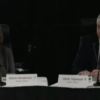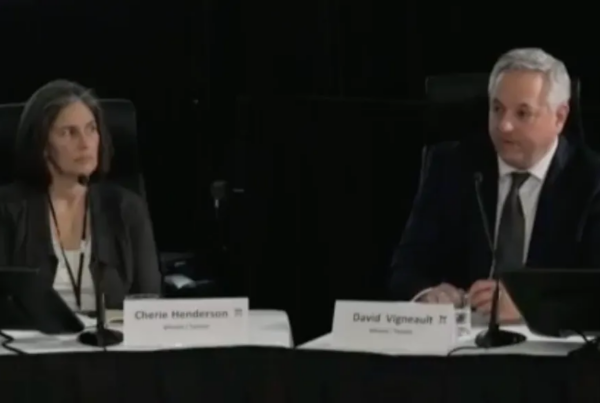
Zakir Naik in the Maldives, 2010
The Emerging Terrorist Threats from Dr. Zakir Naik’s Salafist Teachings
On the evening of July 5th 2016, foreign tourists and workers of multi-national corporations and aid agencies sat at the Holey Artisan Bakery in Dhaka, a café known for attracting foreigners to its European cuisines. Unknown to these customers, six armed men had surreptitiously entered the premises with then intent to kill the occupants by means of machete. The group of individuals had an exact idea about the building and had earlier made reconnaissance visits in order to mark the security loopholes. In the two hours before the arrival of elite Bangladeshi police unit Rapid Action Battalion and subsequent fierce gun battle, the Islamic State-pledged militants killed 22 people. All six Islamist militants were also killed in the battle. This was not the first incident of Islamist terrorism in Bangladesh in recent past. A number of secular bloggers and Hindu pundits have been hacked to death by Islamist militants in last two years. During the course of the investigation of the attack, the Islamist militants turned out to be the followers of Islamist televangelist Dr. Zakir Naik, and of his views on terrorism[1].
The Dhaka café terrorist attack was not the first incident where Zakir Naik’s radical Islamist views popped up in international media. Naik’s Salafist thoughts have previously inspired Islamist terrorists to conduct similar attacks. Indian Islamist terrorist Rahil Shaikh, who bombed Mumbai commuter trains in 2006, Najib ullah Zazi, an Afghan-American who was arrested in 2009 for planning to bomb New York City’s subway, and Kafeel Ahmad, another Indian Islamist who attempted to bomb Glasgow International Airport with an explosive-laden car, were all inspired by Naik’s teachings[2].
In June 2010, the controversial Mumbai-based self-proclaimed scholar of comparative religion was denied entry into Canada for attending a conference[3] because of his intolerant views on other religions, terrorism and women. The Canadian government followed a similar decision taken that same year by United Kingdom’s Home Secretary to ban him because of his “unacceptable behavior”[4]. Dr. Naik was also denied entry for delivering lectures at a university in the state of Malacca after receiving complaints from minority groups[5]. Even in his own country of India, where he is popular among Muslim youth, Zakir was stopped from delivering public talks for fear of disruption of the public order[6]. Bangladeshi government also banned the transmission of Dr Naik’s television program Peace TV, which he founded in part from financiers from Saudi Arabia. Bangladesh’s Home Minister has also confirmed that “he is on our security scanner… [and] our intelligence agencies are investigating his activities as his lectures appeared provocative[7].” The Indian government is also examining CDs of Zakir Naik’s speeches and sermons and flow of foreign funding to his Islamic Research Foundation (IRF)[8]. According to one recent report, Naik is accused of motivating and radicalizing at least 50 people with his jihadi-inspired speeches, who were later found involved in terrorism related cases. After reviewing his statements and sermons, the Indian government is set to ban his Islamic Research Foundation and charge him under Unlawful Activities Prevention Act [9].
Amidst the revelations that the perpetrators of the Bangladesh attack were supporters of his, and further ongoning investigations in India, Naik, announced on a trip to Saudi Arabia that he did not plan to return to India until next year[10].
Who is Dr Zakir Naik?
Born in Mumbai, Maharashtra, to Gujrati family in 1965, Naik received his Bachelor of Medicine from University of Mumbai. He practiced medicine before he started preaching and proselytizing in India under the platform of the Islamic Research Foundation[11]. Naik drew inspiration from South African Salafist scholar Ahmad Deedat, another controversial scholar of Salafi Islam, and still considers him as his mentor. Following the teachings of his ideal and guide, Naik conceptualized many of his ideas without having any formal religious education. He then founded Peace TV, which he claimed to have established with donations from Middle East and Indian Muslim communities, and broadcast his own speeches and sermons. Defending criticism that has been levelled that he is a self-taught scholar with no religious credentials, Dr. Naik calls himself a scholar of comparative religions and claims to have command over religious texts such as the Quran, Bible, Torah, and Hindu scriptures such as Mahabharata, Upanishad, and Bhagwat Gita.
Unlike other Islamist televangelists, Naik has a huge following among Salafist and Deobandi Muslim communities in South Asia (specifically India, Bangladesh and Pakistan) but also in expatriate Muslims of South Asian descent. This prevalence can be linked to the non-stop broadcast of his lectures and speeches through satellite channel Peace TV. Another reason is Dr. Naik’s command over multiple languages such as English, Urdu, Arabic, and of course his mother tongue Guajarati. Naik’s format is simple. First, he delivers a sermon on a specific topic and then takes questions from the audience. When posed with questions, he elaborates with replies laden with memorized references from religious texts that can justify the superiority of Islamic faith over others sects of Islam. He frequently posits Sufism and Shia-ism as inferior to puritanical Salafist thought in sermons recorded and edited by IRF and Peace TV employees and that are then repeatedly broadcast on Peace TV. A former employee of Peace TV recently alleged Naik of planting his own men in the audience with questions and many of those who converted to Islam after ‘getting inspired’ by Naik’s lectures and Q&A sessions were in fact actors[12].
Moreover, his views on women and minorities have been deemed intolerant enough to lead to their censorship by the Canadian and British government. Zakir Naik believes women in provocative and revealing clothes are likely to be raped, wife beating is justified by Islamic injunctions, girls should not be sent to schools as they are likely to lose their virginity, and stoning to death for extramarital affairs is acceptable according to Sharia law[13].
As far as minority communities in a Muslim-majority country are concerned, Naik objects that they should not be allowed to preach and proselytize because their doctrines are ‘false’. He also considers Sufi Islam as ‘tomb worship’ and un-Islamic. Naik also annoyed adherents of Muslim-Shia sects when he praised Yaid bin Mauvia, who assassinated the Prophet Mohammad’s grandson and most of his family in Karbala, Iraq in 680 AD[14].
A more severe allegation that has been levelled at Naik is regarding his inaccuracy of facts and figures he presents in his sermons. A researcher of comparative religions found 25 critical mistakes in an analysis of 5-minutes of Naik’s speech. Most of the presented facts were turned out to be either non-existent or manipulated by him to mould the argument[15].
Views on Terrorism, Al-Qaeda, ISIS and anti-Semitism
Dr. Zakir Naik’s views on Islamist terrorism are a cause for security concerns because of his outreach through mass communications. He is chief executive of Peace TV, which is dedicated to broadcasting his sermons throughout the world. Therefore, it is likely that his views concerning terrorism are more likely to influence Islamist terrorism in the West. Most of the Islamist terrorists inspired by his teachings are living in the Western countries.
Dr. Naik has stated controversial views on global jihad and Islamist terrorism. As he said, “If he is fighting enemies of Islam, I am for him. I don’t know him personally. If he is terrorizing America, the biggest terrorist, I am with him. Every Muslim should be a terrorist. The thing is that if he is terrorizing a terrorist, he is following Islam”[16].
His Salafist mindset surfaced while defending Al-Qaeda, promoting the denial of the 9/11 attacks, espousing pro-sex slavery views and defending Islamic State of Iraq and Sham (ISIS) for brutalities conducted against the Yazidi and Shia women of Iraq. Dr. Naik does not consider Osama bin Laden a terrorist leader and refused to comment on his character because ‘he has never met him’. Naik described President George W Bush’s Afghanistan and Iraq war policies as terrorist, despite those two also having ‘never met’.
Another cause for alarm is Naik’s anti-Semitic views. While expressing his views on Judaism, Naik said that the international Jewry controls the world media and ‘Jews by nature as a whole are against Muslims[…]and they will be as a whole staunchest enemies of Islam[17].” During his lectures, sermons and public talks, Naik openly blames Jews for their misdeeds. Naik has also stated his beliefs that attacks were ‘carried out by George Bush himself and politicians in the White House engineered the attacks”[18].
Moreover, he justified his argument that 9/11 was part of the plan to ‘attack Muslim oil rich countries’ and that ‘19 hijackers and few men in the caves of Afghanistan could not do that[19]’.
As far as ISIS is concerned, Naik has not said anything directly supportive but has clearly stated in favor of keeping sex slaves, a medieval practice recently reintroduced by ISIS in areas under its control in Iraq and Syria. In his sermons and public speeches in India and elsewhere, Naik has spoken in favor of keeping sex slaves and women captured during war and considered it Islamic. Naik has publicly seconded ISIS’s stance on sex slaves and tacitly approved the practice[21] [22].
His his views on suicide bombings, which he considered an act of war and thus also implicitly condones ISIS’s conduct, he stated “it is haram if innocent people are being killed. But, if suicide bombing is used as a tactic of war, then it may be permitted[23].”
Conclusion
Zakir Naik’s views are a matter of concern for Western countries as he has been able to build a reputation among the Islamist circles and his camouflaged radical Islamist ideas could add fuel to the fire. With financial support from Saudi Arabia and Middle Eastern countries, capitalizing on free speech in the West, use of multiple languages for covering a wide range of audience of Muslim diaspora communities, Naik is likely to inspire more Islamist terrorists.
Naik’s Salafist influence is growing in South Asia and among expatriate South Asian communities living in North America and Western Europe. Naik deliberately targets a low income, semi-literate, desperate Muslim minority and relies on his multiple language skills to propagate his intolerant and violent Salafist ideals. His views on other religion showcases jihadist tendency of Al-Wala Wal Bara (loyalty and disavowal) paving way for disconnecting all relations and contacts with anyone not adhering to Salafist ideas. Capitalizing on mass media, Dr. Naik is emerging as a much bigger threat than the West and South Asian governments (especially India, Pakistan, and Bangladesh) had imagined. The results of his decade-long televangelism have begun to surface.








